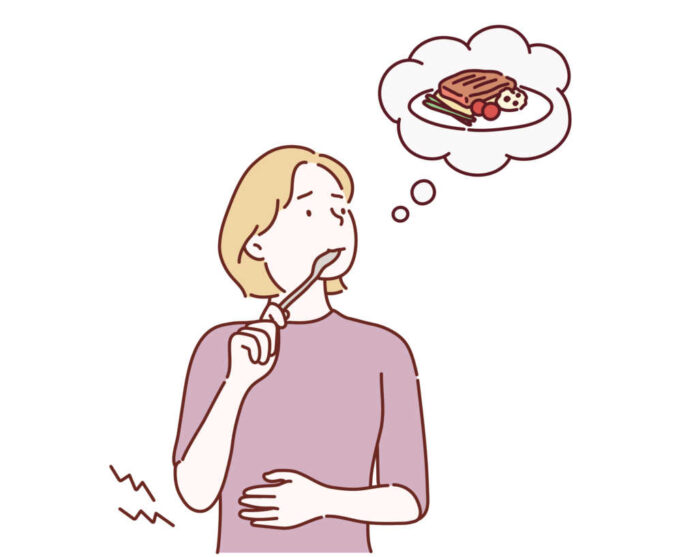
If you often feel hungry, even after you’ve just eaten a meal, it could be a sign that something is off with your diet.
Hunger is a normal sensation that tells us we should eat. After you eat a meal, your hunger should subside.
But sometimes, you may continue to feel hunger pains immediately after eating.
Not Enough Protein
One of the reasons you may continue to feel hungry after a meal is if you’re not eating enough protein.
Protein-rich foods are very filling. They slowly digest, which helps you feel satisfied for longer.
If your diet doesn’t have much protein, such as lacking meat, beans, nuts, or seeds, you may feel hungry soon after your meal.
Not Enough Fiber
Fiber also slows down your digestion and keeps you feeling full.
Good sources of fiber include fruits, vegetables, whole grains, and beans.
Eating these foods will also give you the satisfaction of a full stomach without overeating. As your stomach expands and stretches in response to food intake, signals are sent directly to your brain to let you know you’re full.
Drinking more water can also help you fill-up the space in your stomach.
If those stretch receptors aren’t triggered, if you stop eating before the volume of your stomach is filled, you’ll still feel hungry and likely find yourself snacking a little while later.
When plant-based, high-fiber foods make up the bulk of your diet, you’re more likely to feel satisfied after meals.
Reassessing Your Hunger Signals
Another possibility for why you still want more food after eating a meal is that you’ve become accustomed to eating when you’re not physically hungry.
You may have developed the habit of eating when you’re bored, stressed, or emotional.
The feeling you call “hunger” might not actually be hunger. It could be an emotional routine that you’ve learned to associate with eating.
That rumbling in your stomach might be a part of the digestion process. As food moves from your stomach to your intestines, it can create noise and slight discomfort, but that doesn’t necessarily mean you need more food or nutrients.
Start paying attention to your body’s signals and try to determine if you’re physically hungry or if you’re misinterpreting other sensations as hunger.
If you’re unsure, try waiting a few minutes to see if the sensation goes away.
Drink a glass of water and see if that helps.
If you continue to eat when you are not hungry, you’re likely to overeat, gain weight, and increase your risk of developing obesity and other chronic health conditions.
It’s essential to get in touch with your body’s natural hunger signals and only eat when you’re physically hungry.
If you’re not sure how to do that, talk to a registered dietitian or nutritionist who can help you assess your eating patterns and make necessary changes.






















